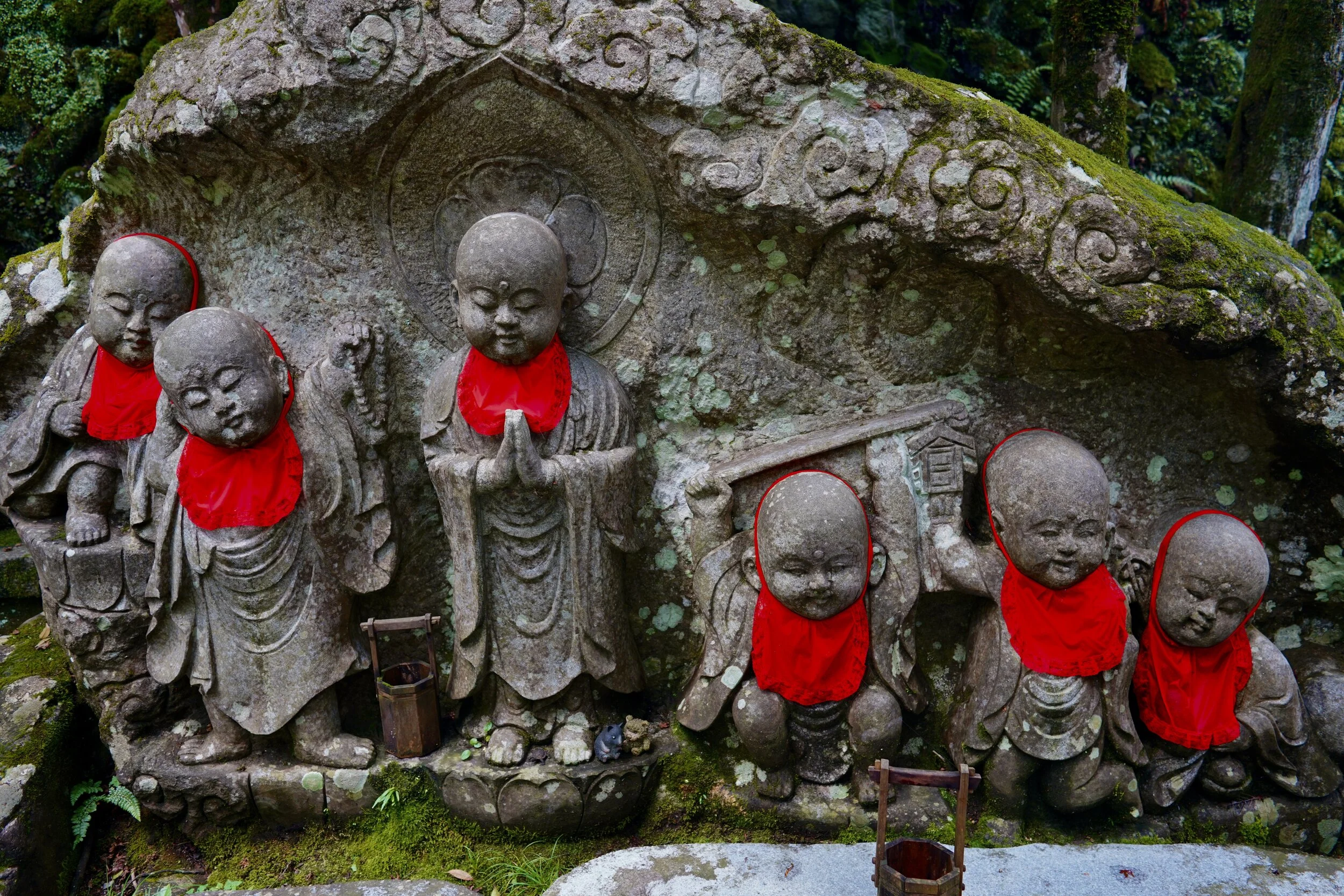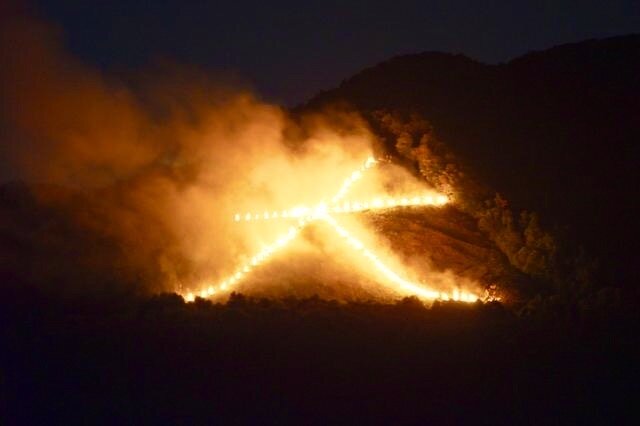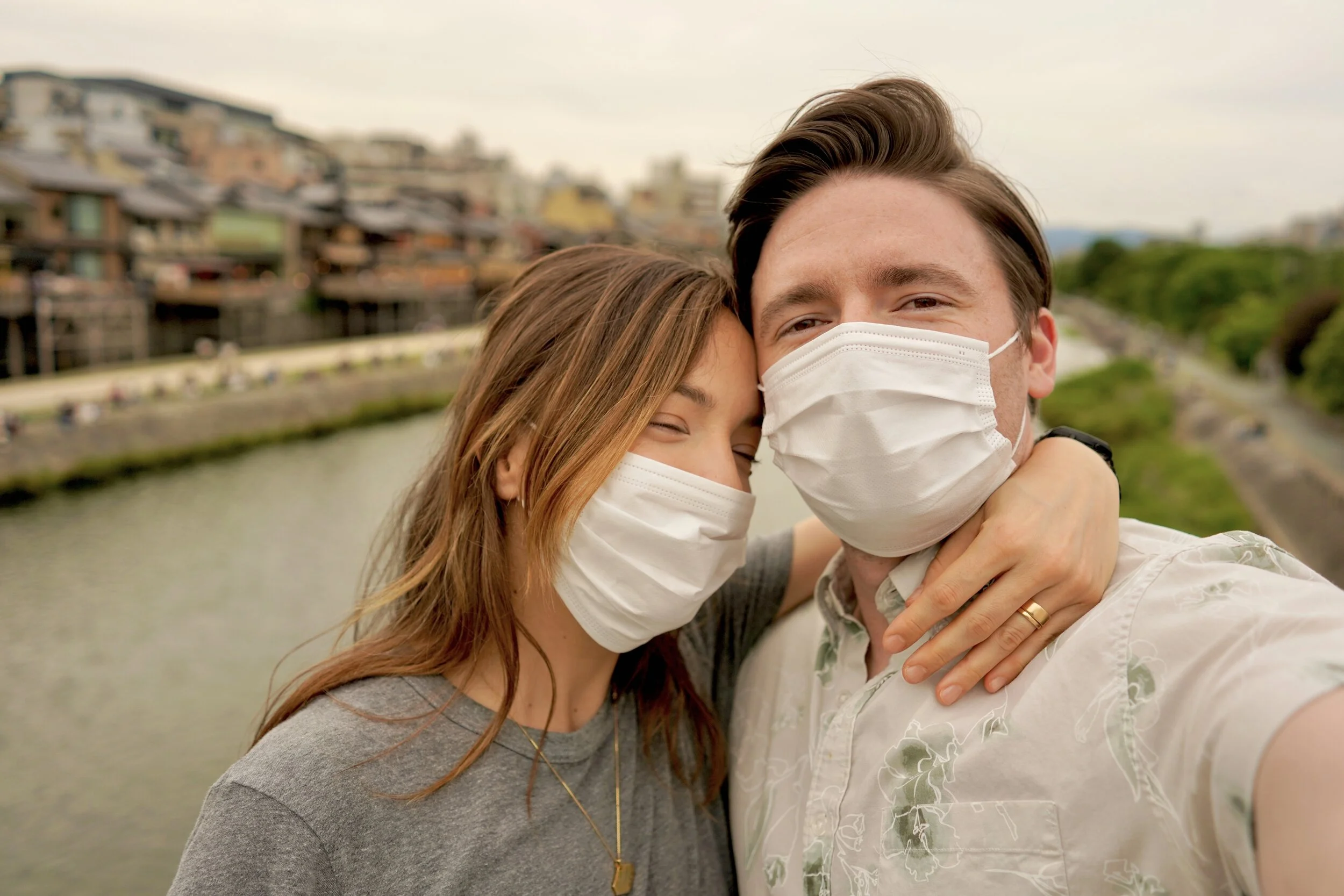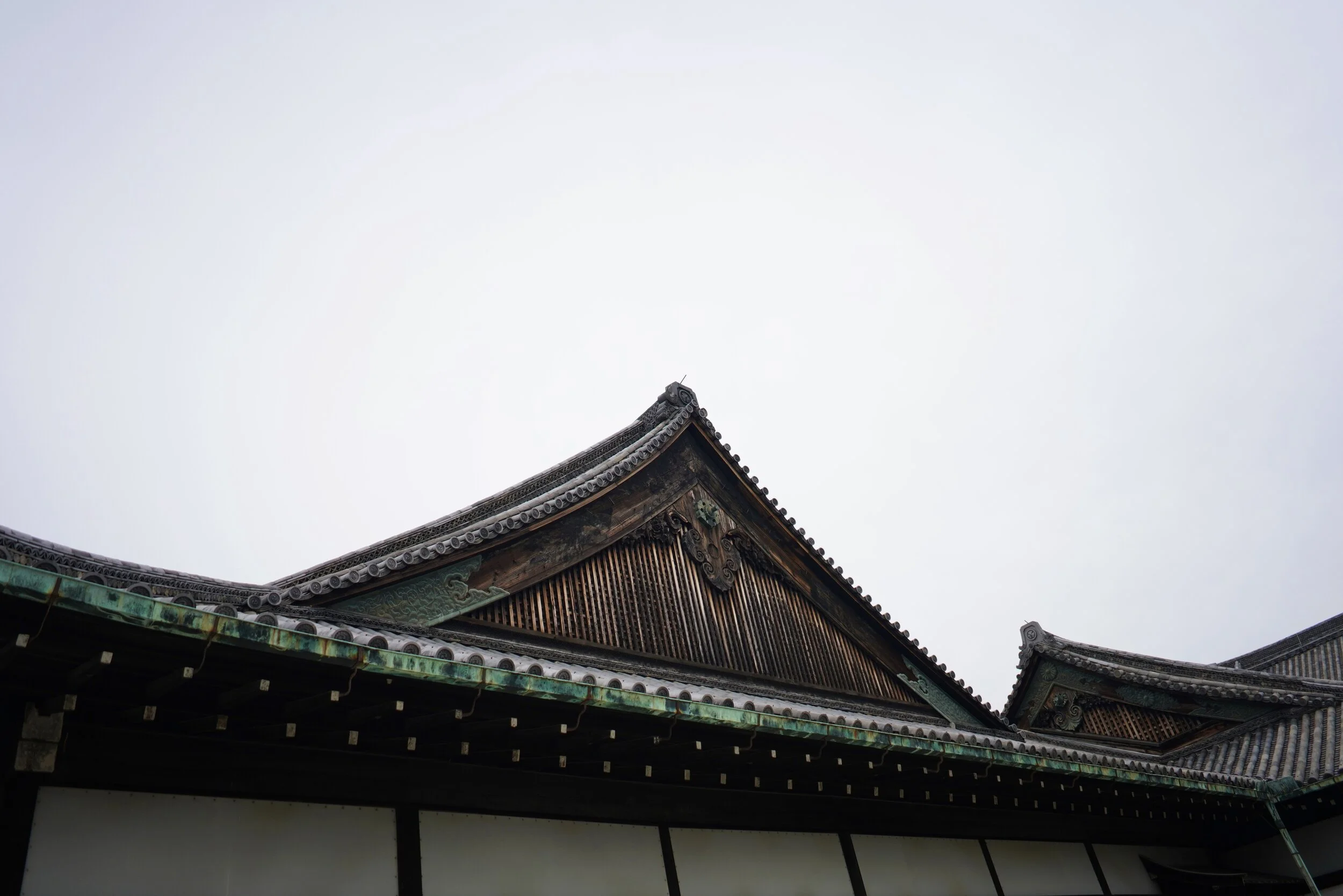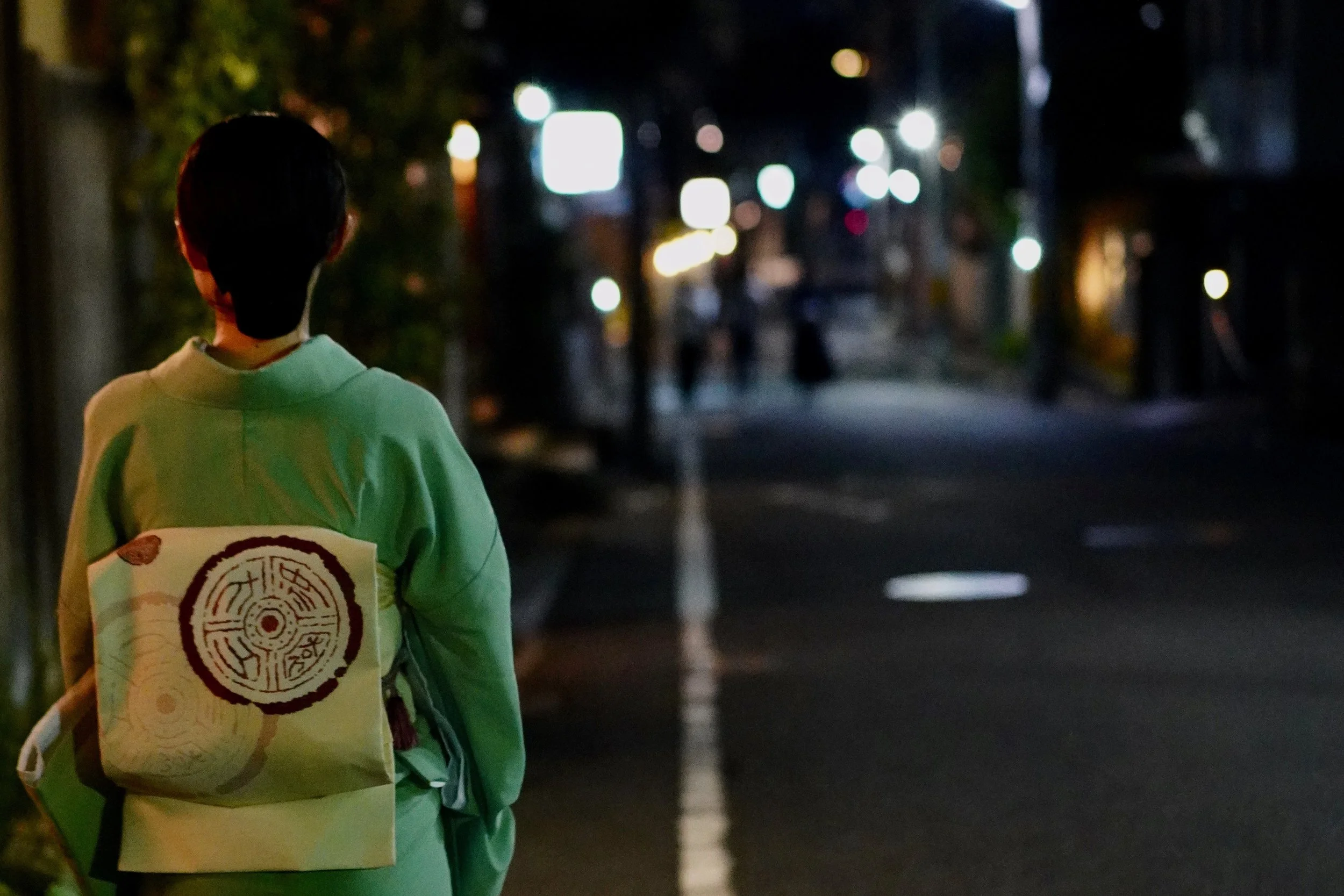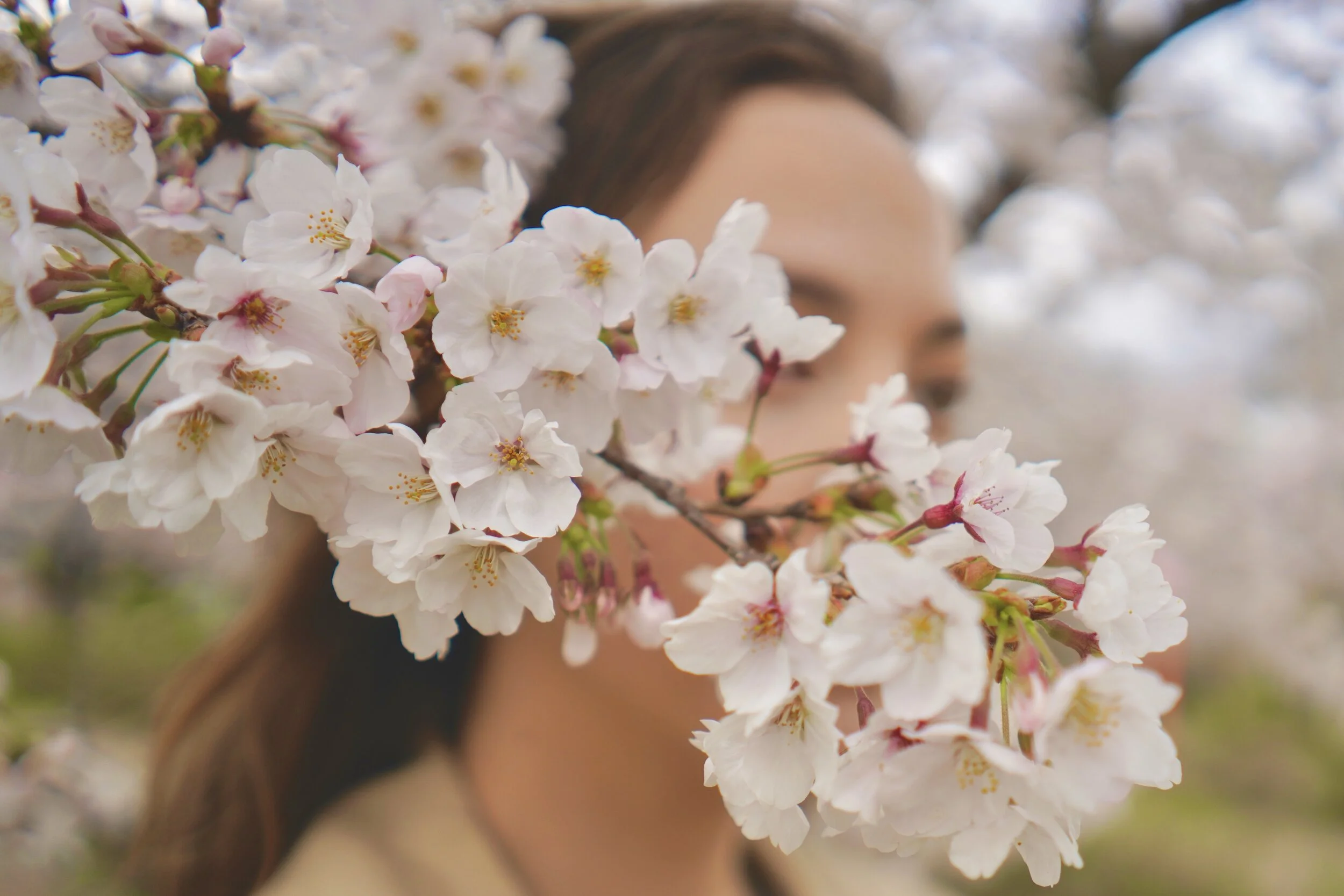The Return Of Our Ancestors
I can see her crescent-shaped eyes, stirring with emotion, yet appearing empty at the same time. It’s the kind of profound expression you can only read from a person who has come to terms with the fact that they are nearing death. Smooth strokes of sunlight bounce across her sunken face, now aged from the cancer. I reach out for her hand, resting peacefully on the frame of her walker; such beautiful, soft hands. She molded rice balls exquisitely with those hands, hugged me since I was a newborn with those hands, knitted me a striped blanket of pink and white yarn with those hands, and now one of her hands wearily rests in mine. She’s deep in thought, I can tell, as her eyes begin to well. She releases a slow sigh of collapsing acceptance, her gaunt chest rising and falling underneath her baggy nightgown. I hear her speak calmly, not to me, but to herself, “I’m not afraid.”
My Grandma, my sweet Obachan. My eyes scan the Japanese sky, as if I’m searching for her, and sometimes I feel as though I’ve found her here. She spent her first 37 years amidst the skies and the cherry blossoms of Japan, raising her young boys on her own. She fell in love with an American expat, by happenstance, and boldly moved with him to America, surrendering the familiar and embracing the foreign. My father wasn’t yet a teenager, having to set foot off of his native country for the first time, never having spoken a word of English before. I wonder what they must have felt beginning a new life, arriving to the frosty landscape of Minnesota. I wonder if she ever felt adrift trying to find her bearings in an unknown place. I wonder if she longed for Japan or for her mother or for everything that was home to her. She was brave and gutsy and resilient, and I’m only just beginning to fully realize that now.
Here I am, with a strong, typhoon breeze running through my hair, surrendering the familiar and embracing the foreign. I am retracing the faint footprints of her past life, only a handful of years younger than she was after bidding her country a final farewell. She nudges me sometimes, with subtle reassurances that she’s watching over me. I find myself reminded of her when the blurred wings of a hummingbird pass me by. She always admired the joyful vitality of hummingbirds. I’m focusing upwards at my umbrella’s kaleidoscope of colors, sheltering me from the thrashing of a typhoon’s sporadic downpour. She gently passes through my thoughts, and I strangely reexamine the flower prints etched on my umbrella’s canopy. I’m squinting through the drumming of rain, my eyes following the sharp strokes of petals, suddenly taken aback by a different outline I never noticed before hiding within the white, yellow, and green patterns. I see hummingbirds for the first time, adorning every panel of my umbrella.
We never held a funeral for my Grandma. She was Buddhist and never even wanted one. I always felt funerals fell short anyhow. We gather around, flowers sprinkled everywhere, blackened clothing and tear-stained cheeks, saying our goodbyes, walking away, and then… nothing. We wake up the next morning, pour ourselves a cup of coffee, mimic the motions of daily life, days turning to years, with our connection completely cut off from the person we love. Maybe keeping that connection alive is what can carry us through the grief?
Once a year, Japan preserves a celebration of remembrance for one’s ancestors, reconnecting us to their spirits. Obon is a sacred festival with the belief that our beloved ancestors will return to us, gently guided by the glow of bonfires set aflame outside of homes. Obon endures through acts of ancient tradition; altars are adorned with offerings, grave sites are overflowing with flowers, shrines are greeted with prayers, and festivities are ignited with dance. It’s a special time of year when Japan reflects upon the lives lived before us, pausing to pay our respects and to feel the remnants of their warm blood passed onto us.
Photo Credit: Japanese Creations japanesecreations.com
My husband and I were waiting by the edge of Kyoto’s Kamo River on a stifling August evening, surrounded by the kind of clinging-to-skin summer air that never ceased. Crowds of families were gathered along the river bank, yet spaced apart, and the steady shrill of cicadas pierced through the quiet hum of conversation. We were on countdown until the darkened mountainsides overlooking the city would be set ablaze, commencing the spectacular send-off fires intended to peacefully aid our ancestors back to the spirit world. Striking kanji symbols clouded the sky with smoke, forming each fire with lines of fiery orange, drawing the curtains down for the festivities of Obon.
We began to make our way back to the train station, crossing over Marutamachi Bridge, and I suddenly felt a deep pull to pause. I leaned my forearms on the cold surface of the railing, first glancing down at the moon-brushed translucence of the river below, then up to the night sky illuminated by the distant fires. Some stars were flickering, even having burned out a million years ago. I could feel so much universe between the stars and us.
I thought of her. My Obachan. Maybe she was somewhere up there amongst the stars, knowing that I was thinking of her. Maybe her spirit passed through tonight like a warm, summer breeze. Maybe she couldn’t even hear me, but at that very moment, Jeremy perked up, pointing up to the sky. “Did you just see that?!” A shooting star sailed across the cosmos before us, like a beacon in the midst of darkness.
I can’t help but think that it was her, painting the sky with a signal, smiling down.
Cheers,
Tera


